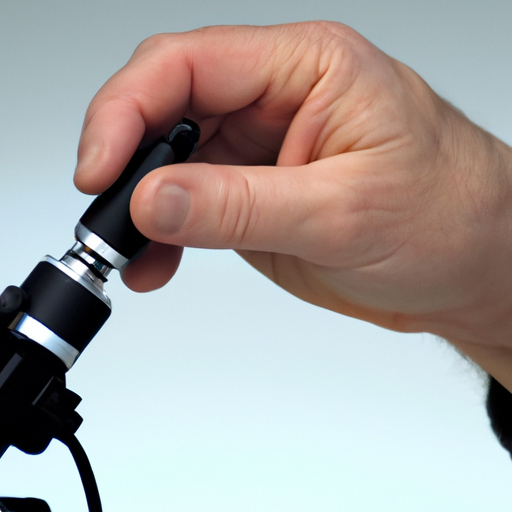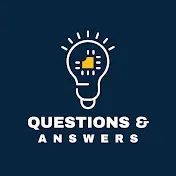“Unlock Your Potential – Improve Your Communication Skills Today!”
Introduction
Good communication skills are essential for success in almost any field. Whether you are a student, a professional, or a business owner, having strong communication skills can help you to achieve your goals. In this article, we will discuss some of the best ways to improve your communication skills. We will look at how to become a better listener, how to use body language to your advantage, and how to effectively communicate with others. We will also discuss how to use technology to improve your communication skills. By the end of this article, you should have a better understanding of how to improve your communication skills.
How to Develop Active Listening Skills to Improve Communication
Active listening is a communication technique that requires the listener to fully concentrate, understand, respond, and then remember what is being said. It is an important skill to develop in order to improve communication in any setting. Here are some tips to help you develop active listening skills:
1. Pay Attention: Focus on the speaker and give them your full attention. Avoid distractions such as checking your phone or daydreaming.
2. Show That You’re Listening: Use body language and verbal cues to show that you are listening. Nod your head, make eye contact, and use phrases such as “I see” or “I understand” to demonstrate that you are paying attention.
3. Ask Questions: Ask questions to clarify any points that you don’t understand. This will help you to better comprehend the speaker’s message.
4. Repeat Back: Repeat back what the speaker has said to ensure that you have understood them correctly. This will also show the speaker that you are actively listening.
5. Don’t Interrupt: Allow the speaker to finish their thought before you respond. Interrupting can be seen as disrespectful and can disrupt the flow of the conversation.
By following these tips, you can develop active listening skills and improve communication in any setting.
The Benefits of Nonverbal Communication and How to Improve It
Nonverbal communication is an important part of any conversation, as it can convey a great deal of information without the need for words. Nonverbal communication can be used to express emotions, establish relationships, and even influence the behavior of others. It is important to understand the benefits of nonverbal communication and how to improve it in order to maximize its effectiveness.
One of the primary benefits of nonverbal communication is that it can be used to express emotions. Facial expressions, body language, and gestures can all be used to convey a range of emotions, from happiness to anger. This can be especially useful in situations where verbal communication is not possible or appropriate. Nonverbal communication can also be used to establish relationships. By using nonverbal cues, such as eye contact, posture, and touch, people can create a sense of connection and trust.
Nonverbal communication can also be used to influence the behavior of others. By using nonverbal cues, such as facial expressions and body language, people can subtly influence the behavior of those around them. For example, a person may be able to influence another person to take a certain action by using nonverbal cues.
In order to maximize the effectiveness of nonverbal communication, it is important to understand how to improve it. One way to do this is to practice using nonverbal cues in everyday conversations. This will help to develop an understanding of how to use nonverbal communication effectively. Additionally, it is important to be aware of the nonverbal cues that others are using. By paying attention to the nonverbal cues of others, it is possible to better understand their feelings and intentions.
Overall, nonverbal communication is an important part of any conversation. It can be used to express emotions, establish relationships, and influence the behavior of others. By understanding the benefits of nonverbal communication and how to improve it, it is possible to maximize its effectiveness.
How to Use Positive Language to Enhance Communication
Positive language is an important tool for effective communication. It can help to create a positive atmosphere, build relationships, and encourage cooperation. Here are some tips for using positive language to enhance communication:
1. Use words that are encouraging and supportive. Instead of saying “you should” or “you must,” try using phrases like “I suggest” or “I recommend.”
2. Avoid negative words and phrases. Instead of saying “no” or “don’t,” try using phrases like “let’s try” or “let’s explore.”
3. Focus on the positive. Instead of pointing out what someone did wrong, focus on what they did right.
4. Use active language. Instead of saying “I can’t,” try saying “I will.”
5. Ask open-ended questions. Instead of asking yes or no questions, ask questions that require more thought and discussion.
By using positive language, you can create a more positive atmosphere and foster better communication. It can help to build relationships, encourage cooperation, and create a more productive environment.
How to Overcome Fear of Public Speaking and Improve Communication

Public speaking can be a daunting task for many people, but it is an important skill to have in order to effectively communicate with others. Fortunately, there are several steps that can be taken to overcome fear of public speaking and improve communication.
First, it is important to understand the source of the fear. Many people are afraid of public speaking because they are worried about making mistakes or being judged by others. It is important to recognize that these fears are normal and that everyone makes mistakes. Once this is accepted, it is easier to move forward.
Second, it is important to practice. Practicing in front of a mirror or with friends can help to build confidence and reduce anxiety. It is also important to practice the speech or presentation multiple times in order to become familiar with the material and reduce the chance of making mistakes.
Third, it is important to be prepared. This means researching the topic thoroughly and having a clear understanding of the material. It is also important to be familiar with the audience and the venue. Knowing the audience and the environment can help to reduce anxiety and make the presentation more effective.
Fourth, it is important to focus on the message. Instead of worrying about making mistakes or being judged, focus on the message that needs to be communicated. This will help to keep the presentation on track and make it more effective.
Finally, it is important to take deep breaths and relax. Taking deep breaths can help to reduce anxiety and make it easier to focus on the message.
By following these steps, it is possible to overcome fear of public speaking and improve communication. With practice and preparation, anyone can become a confident and effective public speaker.
How to Improve Your Writing Skills for Better Communication
1. Read, read, read. Reading is one of the best ways to improve your writing skills. Read books, magazines, newspapers, and other materials that are written in a style that you admire. Pay attention to the structure, grammar, and vocabulary used in the writing.
2. Practice writing. Writing regularly will help you become a better writer. Set aside time each day to write, even if it’s just for a few minutes. Start a blog or journal, or write short stories or poems.
3. Learn grammar and punctuation rules. Knowing the rules of grammar and punctuation will help you communicate your ideas more clearly. Take a class or read a book on grammar and punctuation to brush up on your skills.
4. Use a dictionary and thesaurus. A dictionary and thesaurus can help you find the right words to express your ideas. Use them to look up unfamiliar words and to find synonyms for words you use often.
5. Edit your work. Take the time to read through your writing and make sure it is clear and error-free. Check for typos, grammar mistakes, and incorrect punctuation.
6. Get feedback. Ask a friend or family member to read your writing and give you feedback. Ask them to point out any areas that need improvement.
7. Take a writing class. Taking a writing class can help you learn new techniques and get feedback from an experienced instructor.
By following these steps, you can improve your writing skills and become a better communicator.
How to Use Technology to Improve Communication
Technology has revolutionized the way we communicate with one another. From emails to video conferencing, there are a variety of ways to use technology to improve communication. Here are some tips on how to use technology to improve communication.
1. Utilize Video Conferencing: Video conferencing is a great way to communicate with people who are not in the same physical location. It allows for face-to-face conversations, which can help to build relationships and foster better communication.
2. Use Instant Messaging: Instant messaging is a great way to quickly communicate with someone. It is also a great way to keep track of conversations and ensure that everyone is on the same page.
3. Utilize Social Media: Social media is a great way to stay connected with people who are not in the same physical location. It allows for quick and easy communication, and it can be used to share information and ideas.
4. Use Online Collaboration Tools: Online collaboration tools are a great way to work together on projects and documents. They allow for multiple people to work on the same document at the same time, which can help to speed up the process and ensure that everyone is on the same page.
5. Utilize Cloud Storage: Cloud storage is a great way to store and share documents and other files. It allows for multiple people to access the same files, which can help to ensure that everyone is on the same page.
By utilizing these tips, you can use technology to improve communication and ensure that everyone is on the same page. Technology has revolutionized the way we communicate, and it can be used to foster better relationships and ensure that everyone is on the same page.
The Role of Empathy in Improving Communication Skills
Empathy is an essential tool for improving communication skills. It is the ability to understand and share the feelings of another person. Empathy allows us to connect with others on a deeper level, to understand their perspectives, and to communicate more effectively.
When we are able to empathize with someone, we can better understand their feelings and needs. This helps us to respond to them in a more meaningful way. We can also use empathy to better understand our own feelings and needs, which can help us to communicate more clearly and effectively.
Empathy also helps us to build trust and rapport with others. When we are able to understand and relate to someone’s feelings, they are more likely to trust us and be open to our ideas. This can help us to build strong relationships and foster better communication.
Empathy also helps us to be more patient and understanding when communicating with others. We can better recognize when someone is struggling to express themselves, and we can be more patient and understanding when they do. This can help us to create a more positive and productive communication environment.
Finally, empathy can help us to be more aware of our own body language and tone of voice. We can use empathy to recognize how our words and actions may be interpreted by others, and we can adjust our behavior accordingly. This can help us to communicate more effectively and avoid misunderstandings.
In conclusion, empathy is an essential tool for improving communication skills. It helps us to better understand and relate to others, to build trust and rapport, to be more patient and understanding, and to be more aware of our own body language and tone of voice. By utilizing empathy, we can become better communicators and foster more meaningful relationships.
Conclusion
The best ways to improve communication skills are to practice active listening, be aware of body language, use clear and concise language, and be open to feedback. With practice and dedication, these techniques can help anyone become a better communicator. Communication is an essential skill in any field, and with the right tools, anyone can become a better communicator.











